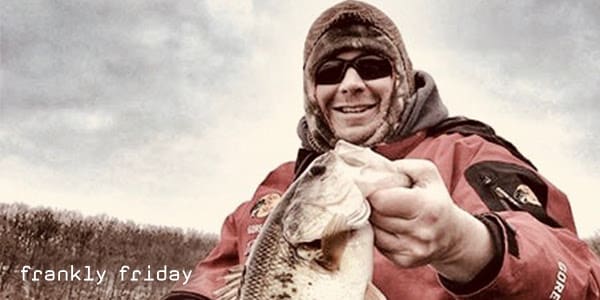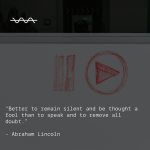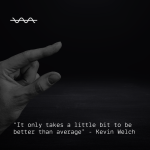
By the bass boat in his garage and the four days a week he spends on a lake you’d think my neighbor Marty was a professional angler. But I learned one day I had him pegged completely wrong.
I hollered across the driveway, “I’m going fishing Marty. Got any tips for me?”
“Which lake are you going to? What part of the lake? And what day?”
“Stockton. Roark Bluff. Saturday.”
“I’ll be right back, he said.”
Marty returned with a thick binder filled with years of notes on his fishing ventures. He studied his records on water colors, winds, and temperatures at Stockton lake, checked the forecast, then walked over to a cabinet. He reached into one of his many perfectly organized tackle boxes and pulled out some lures, then walked over to another set of boxes and pulled out a few more.
“Use these, and you won’t be disappointed,” he said as he put them in a bag.
That Saturday I pulled in more fish than I’d ever seen in my entire life. It had nothing to do with luck (I’ve never had any in the fishing department). It was because Marty isn’t a professional angler at all; he’s a professional scientist. And unlike most people, Marty knows how to properly use data; in context.
Like amateur anglers, most of us use too few pieces of information to jump to conclusions. Instead of fully studying why we got a result and experimenting again, we throw out ideas (bait) that don’t give us immediate gratification.
It makes us feel good to believe we’re making informed decisions based on the “data,” the “numbers,” and the “facts,” but each piece of data is really only capable of telling one tiny part of the story it was created in. When we make rapid decisions based too little information, all that we really amount to are impulsive gamblers.
Professional anglers and professional scientists know how to be patient and use data to see the bigger picture.
Business is a lot like fishing, and people are a lot like fish; they never really change, but the environmental factors around them make them behave differently.
What bait is in the bottom of your tackle box that you’ve never tried again?
Have the water temperatures, the winds, and appetites around you changed?
Did you jump to a conclusion too soon?
Maybe it’s time to learn more to the story and try again.
I predict you’re going to need a really big net
Cheers,
BW







